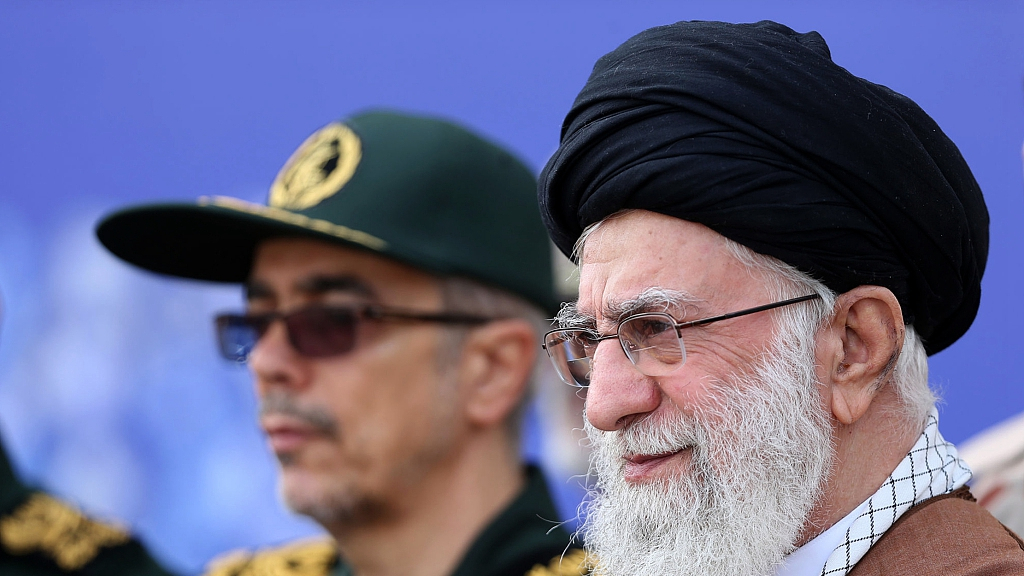Iran has started to inject uranium gas into centrifuges at its underground Fordow nuclear facility, state TV reported on Wednesday, further distancing itself from a 2015 nuclear deal between Tehran and world powers that curbed its atomic work.
The deal bans nuclear material from Fordow and, with the injection of uranium gas into its centrifuges, the facility will move from its permitted status of research plant to becoming an active nuclear site.
"With the presence of inspectors from International Atomic Energy Agency, Iran started injecting (uranium) gas into centrifuges in Fordow," state TV reported.
Official IRNA news agency said 2,000 kilograms of Uranium Hexafluoride (UF6) were transferred to Fordow nuclear facility on Wednesday.
Iranian President Hassan Rouhani, architect of the deal, blamed the United States for Iran's rolling back of its nuclear commitments, saying Fordow would soon fully resume uranium enrichment work.
"Iran's 4th step in reducing its commitments under the JCPOA (the 2015 nuclear deal) by injecting gas to 1,044 centrifuges begins today. Thanks to U.S. policy and its allies, Fordow will soon be back to full operation," Rouhani said on Twitter.
He announced the move on Tuesday in a speech broadcast live on state TV, adding that all of the steps Iran has taken to reduce its commitments to the nuclear deal are reversible and Iran will uphold all of its commitments under the deal when the remaining signatories do the same.
"We know their sensitivity with regard to Fordow. With regard to these centrifuges, we know. But at the same time when they uphold their commitments we will cut off the gas again...So it is possible to reverse this step," Rouhani said.
"We can't unilaterally accept that we completely fulfill our commitments and they don't follow up on their commitments," he added.
Iran said on Monday it had launched a new batch of advanced centrifuges to accelerate uranium enrichment.
Read more:
Iran's decision to spin advanced centrifuges is political
Iran's Khamenei renews ban on talks with U.S.

Iran's Supreme Leader Ayatollah Ali Khamenei (R) is seen during the graduation of military cadets in Tehran, Iran, October 30, 2019. /VCG Photo
Iran's Supreme Leader Ayatollah Ali Khamenei (R) is seen during the graduation of military cadets in Tehran, Iran, October 30, 2019. /VCG Photo
Iran's decision to step away from the nuclear deal comes after the U.S. government announced on Monday that it had imposed sanctions on Iran's Armed Forces General Staff and nine individuals who are related to Iran's supreme leader Ayatollah Ali Khamenei on the day of the 40th anniversary of the seizure of the former U.S. embassy in Tehran.
It is the latest sanction the U.S. has imposed upon Iran. Following its unilateral exit from the 2015 Iran nuclear deal last year, Washington has been piling up pressure on Tehran through a series of sanctions to force it to return to negotiations, slashing Iran's economically vital crude oil sales by more than 80 percent.
Russia called on Iran to fulfil terms under the deal
Russian Foreign Minister Sergei Lavrov on Wednesday called on Iran to fulfill the terms of the 2015 nuclear deal with world powers, but said he understands why Iran was cutting back on its commitments.
Speaking to reporters in Moscow, Lavrov warned that events unfolding around the nuclear deal were extremely alarming and blamed the situation on United States' withdrawal from the deal.
Following Iran's move, French President Emmanuel Macron said Tehran had made "grave" decisions.
"I will have discussions in the coming days, including with the Iranians, and we must collectively draw the consequences," Macron said at a news conference during an official visit to Beijing.
Macron also said Iran and the U.S. must build confidence for a return to normalcy.
China: 'Negotiation is the only solution'
The Chinese Foreign Ministry attributed Iran's move to a "maximum pressure" policy from the U.S. The ministry reiterated China's opposition against unilateral sanctions and long-arm jurisdiction. China hopes all sides could practice restraint and fully implement the nuclear deal, said spokesperson Geng Shuang at a regular press conference on Tuesday.
Geng urged the U.S. to drop its current policy toward Iran, and solve disputes through consultation and dialogue under the framework of the nuclear deal.
Geng stressed that negotiation is the only solution, calling on all sides to meet each other halfway. "China is ready to work with all sides to sustain the regional peace and stability," he added.
EU: 'Iran's decision is a concern'
Iran's decision to take a new step to reduce commitments to a landmark 2015 nuclear deal is a concern, putting the accord at risk, the European Commission said on Tuesday.
"We are concerned by President (Hassan) Rouhani's announcement today to further reduce Iran's commitment under the Joint Comprehensive Plan of Action (JCPOA)," EU spokesperson Maja Kocijancic told reporters, referring to the formal title of the deal.
"We urge Iran to reverse all activities that are inconsistent with its commitments under the JCPOA... it is increasingly difficult to preserve the JCPOA."
(With input from Reuters)